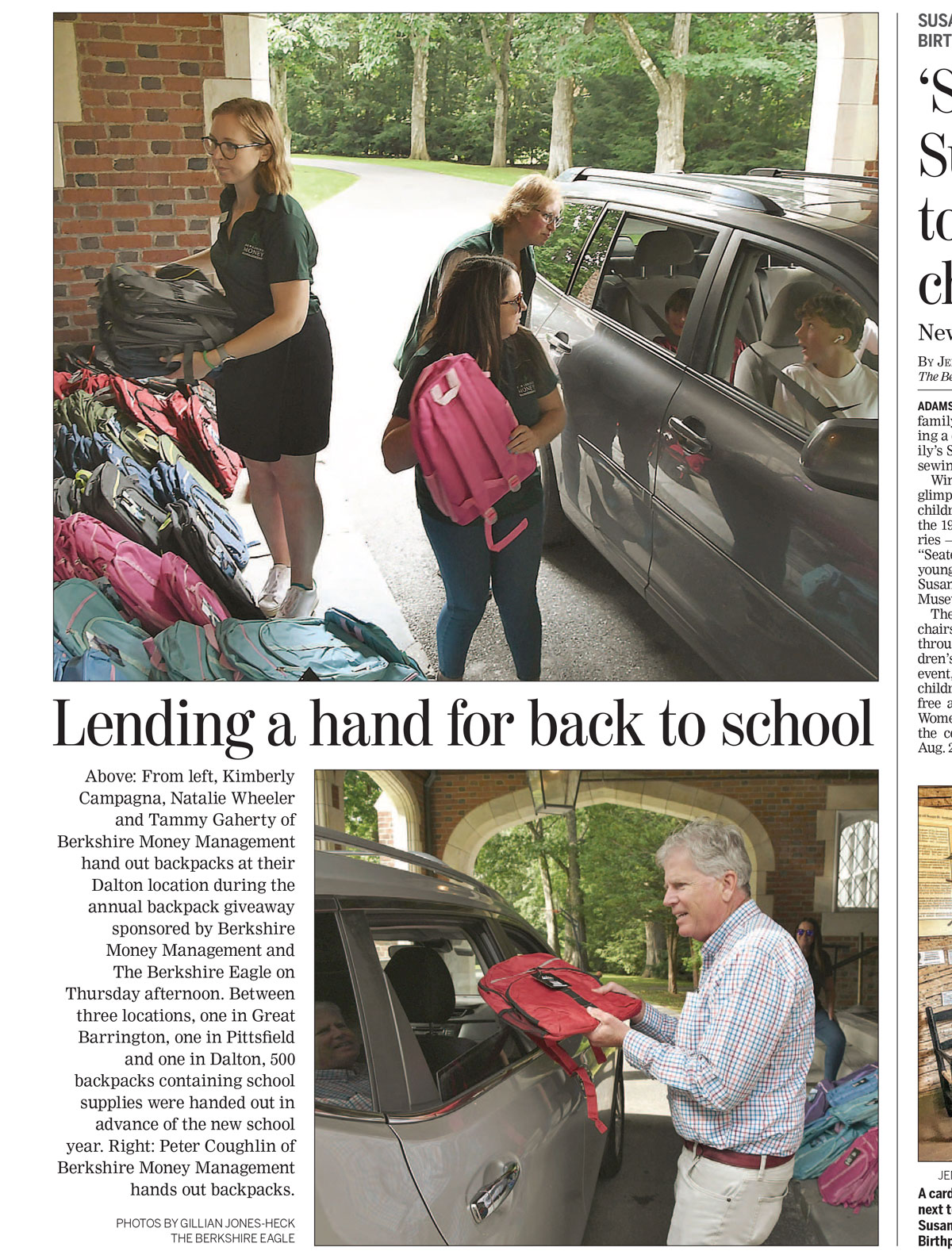Laying the foundation for a fulfilling retirement
By Kimberly Kirchner Sponsored Content Editor September 30, 2022
After decades of showing up for work every day, dutifully setting aside a slice of each paycheck and carefully stowing money in all the right accounts, retirement is supposed to be the easy part.
In reality, knowing how to be retired is a skill, just like knowing how to create a budget or how to build an investment portfolio. Not everyone can transition into post-work life without relearning a few things. After all, for most of our lives, our time is not entirely our own to spend; school, work and familial responsibilities shape our schedules, leaving only small spaces here and there to fill as we’d like. For many people, suddenly shedding that structure can feel less like free sailing and more like being lost at sea.
As Director of Financial Planning at Berkshire Money Management, Zack Marcotte has years of experience helping clients navigate the stages of retirement — from both a financial perspective and a personal one. It’s not uncommon for clients to feel anxious, bored or otherwise discontent as they experience a radical change in lifestyle.
Marcotte breaks down the retirement process into separate phases, starting with the years leading up to retirement through to late stages of life. Each step comes with its own unique challenges, all of which can be managed with a little forethought and a strong social network.
Getting ready for retirement
‘Planning for retirement’ usually brings to mind pensions, Social Security and Roth IRAs. But financial readiness is just one part of the foundation for a healthy retirement.
Loneliness is one of the most common complaints for retirees. Often, our adult relationships are built almost exclusively around the workplace. We come to rely on our office mates for social interaction, and we have trouble connecting with others outside of a professional setting. Marcotte encourages clients to begin building relationships in other contexts — a service organization, a book club, an interest group — so that you’ll still have plenty of opportunities to engage with others even after leaving your job.
Similarly, he recommends looking for new hobbies now, experimenting with different activities to find what you most enjoy, so that you’ll have an outlet ready and waiting for you upon retirement.
And yes, financial planning is a big part of this, too. Even before retirement, having enough money set aside for your later years can be a huge source of stress. What if you get sick, or need to move out of your home? What if what you’ve saved just doesn’t go far enough?
Working with an advisor to map out potential concerns can help ease that anxiety. “A robust financial plan creates a roadmap for retirees,” Marcotte explained, “and helps them to know that they are going to be okay.”
Finally, Marcotte encourages his clients to practice being retired, by taking longer vacations to experience what an extended period without work actually feels like. 40 hours play out very differently when you’re trying to fill them yourself, versus having them filled for you with work. Time off is a chance to determine the balance of free time and structured activities that most satisfies you.
Big changes
The second stage of the retirement process is marked with big peaks of emotion: excitement and enthusiasm over finally being free from work obligations, and anxiety over a sudden lack of structure and social interaction.
At this point, staying engaged is key. “We often recommend clients volunteer, which is scientifically proven to aid in happiness and meaning,” Marcotte said. (A 2020 study in the United Kingdom found that people who volunteered at least once a month reported being more satisfied with their lives and having better mental and overall health than those who didn’t.)
Hobbies can make for another meaningful way to fill the days. Physical activities, like hiking, biking and kayaking, keep brain and body functioning smoothly; more creative pursuits, such as painting and photography, provide an outlet for emotions.
Somewhat counterintuitively, some people find more enjoyment in retirement by going back to work. A study published by the American Psychological Association noted that retirees who took ‘bridge employment’ — part-time positions, temporary jobs and self-employment — were less likely to be diagnosed with a serious disease or experience functional limitations. Subjects who took a job related to the one from which they retired also reported better mental health than their fully-retired peers. The additional income from a part-time job can also help ease financial anxiety.
Other options? Early retirement can be the perfect time to adopt a pet, providing companionship for yourself and a home to an animal in need at the same time.
Couples should be prepared for the effect retirement may have on their relationship. Many couples stagger their retirement, with one partner leaving work before the other. In these cases, the non-working partner will need to find ways to occupy their time alone. “Find ways to meet your social needs with special interest groups, volunteering, and other like-minded individuals,” Marcotte said.
Even after both partners have entered retirement, maintaining individual interests and activities can keep the relationship healthy. “When both spouses retire, finding separate interests becomes more important,” Marcotte said. “Retirees should ask themselves, how would I feel about my spouse if I spent an extra forty hours a week (or more) with them? Some people are looking forward to spending more time together and that’s great. Others should pursue activities individually.”
Staying on track
The world doesn’t stop turning after you retire. The state of the economy on your final day of work could be entirely different on that date ten years in the future. Without the comfort of a weekly paycheck, that kind of uncertainty can be especially stressful for retirees. Marcotte recommends working with an expert to make sure your finances are able to withstand what could be two decades or more out of the workforce.
“Much like regular doctor visits, check-ins with advisors allow you and your trusted advisor to keep a pulse on your financial health,” he explained. “Market fluctuations can change your outlook, as can changes in health, family life, and priorities. You may welcome a new grandchild or discover a passion for an expensive hobby. These regular check-ins are imperative to stay on the path to success.”
Ultimately, retirement should be a reward, not a burden. A little extra preparation beforehand and a willingness to stay active and connected are key to making sure your leisure years are what you’ve always wanted them to be.
This content was paid for and coordinated with the Advisor.
Industry registrations, designations, recognitions, or awards should not be construed as an endorsement or a recommendation to retain the Advisor by the granting entity or any regulatory authority.
Investments in securities are not insured, protected, or guaranteed and may result in loss of income and/or principal.



